

For people and families with Parkinson’s, seeing a movement disorder specialist — an expert who has additional training in diagnosing and treating Parkinson’s — is one of the keys to living life with the disease as well as possible. But there aren’t enough specialists to care for the 6 million people around the world who live with Parkinson’s.
A Global Network of Parkinson's Doctors
Since its launch, The Edmond J. Safra Fellowship in Movement Disorders is a renowned and distinguished training program, one that signals to trainees and people with Parkinson's and their families the highest quality training, most skilled and compassionate care.
By funding medical centers each year to train new movement disorder specialists, the program is building a global network of Parkinson’s experts to provide high-quality care, fuel research progress and train future generations. Centers worldwide are invited to apply.
Remembering Mrs. Lily Safra
The Michael J. Fox Foundation honors the extraordinary legacy of world-class philanthropist Mrs. Safra. Read our tribute on the impact of her generosity on Parkinson's disease research and care.
Watch a video on The Edmond J. Safra Fellowship in Movement Disorders.

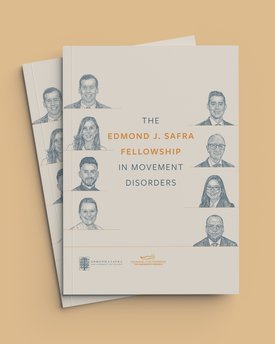
Improving Lives through Research and Care
Learn more about the program’s impact and the most recent Fellowship graduates and their mentors.
To date, The Edmond J. Safra Fellowship in Movement Disorders has graduated 48 new movement disorder clinician-researchers across the world. Each specialist makes significant contributions by delivering high-quality care, advancing research and engaging their local communities. Learn more about the Fellowship graduates and where they are now.
-

William Barbosa, MD
Assistant Professor
University of Rochester
Rochester, New YorkFellowship Site: University of Rochester; Rochester, New York
William completed his undergraduate studies at Brown University and obtained his medical degree at NYU Grossman School of Medicine. He completed his Neurology residency and Edmond J. Safra Fellowship in Movement Disorders at the University of Rochester where he joined as an Assistant Professor. As a clinician-researcher his interests include the characterization of prodromal Parkinson’s disease and the application of diagnostic biomarkers to guide research trial design and support advances in treatment. Additionally, having been born in Puerto Rico he remains committed to giving back to his community and will continue to work in a Spanish-language neurology clinic.
-

Juan Ramon Deliz, MD
Medical Director
Northwestern University - Movement Disorders Division
Chicago, IllinoisFellowship Site: Northwestern University; Chicago, Illinois
Juan was raised in San Juan, Puerto Rico and earned a BA in Neuroscience from Columbia University and an MD from Washington University in St. Louis. He completed both Neurology residency and a Movement Disorders fellowship at the McGaw Medical Center of Northwestern University, where he will serve as a medical director in the Movement Disorders division. A Gold Humanism Honor Society inductee and former local president of the Latino Medical Student Association, Juan is passionate about community outreach and advocacy, focusing on early recognition and improving access to care for individuals with Parkinson’s disease and other movement disorders.
-
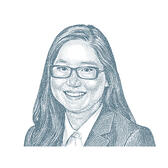
Kacey Hu, MD
Assistant Professor of Neurology
Keck Medical Center of USC
Los Angeles, CaliforniaFellowship Site: University of Southern California Keck School of Medicine; Los Angeles, California
Originally from Los Angeles, Kacey completed her undergraduate and medical school education at Northwestern University in Chicago, but returned to sunny Los Angeles for a neurology residency at LAC+USC and stayed on for movement disorders fellowship at Keck Medical Center of USC. She was drawn to the field of movement disorders in part due to the long lasting relationships built with the patient population as well as the satisfaction of being able to diagnose disorders based on a well-founded history and physical exam. Her research interest primarily centers around deep brain stimulation. After completing her fellowship, she joined USC's faculty position in movement disorders.
-
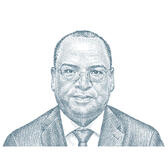
Taha Adam Omer, MBBS, Dip.Ther, DCSM, MRCPI, MRCP (London), PhD
Fellowship Site: University of Calgary; University of Calgary
Taha completed medical training in University of Khartoum. He subsequently pursued training in Neurology in Ireland with an emphasis on movement disorders in his last year, at ULC Queen Square Institute of Neurology. During training, Omer also became a research fellow in Neurology at Trinity College Dublin, earning a PhD studying biomarker profiling and progression in neurodegenerative disorders. During his fellowship training, he has emphasized clinically on advanced therapies of Parkinson's disease while gaining expertise across the whole range of movement disorders. He plans to continue clinical care of movement disorders patients while actively participating in research and teaching/education.
-
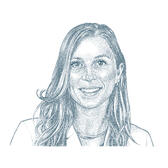
Emily Tharp, MD
Assistant Professor
Department of Neurology
Munich, GermanyFellowship Site: University of Texas Health Science Center; Houston, Texas
A Chicago native, Emily completed her medical degree at Rush University. She relocated Houston to the University of Texas Health Science Center for her neurology residency where she stayed to complete a fellowship in movement disorders. Her clinical and research interests lie in Parkinson’s disease, specifically, risk factors for its development, identification of biomarkers for its early diagnosis, and potential disease modifying therapies for its treatment. She joined UT Houston’s movement division (UTMOVE) as an Assistant Professor in 2025, spending her time split between direct patient care and clinical research.
-

Mehmet Salih Tuncer, MD
Medical Doctor
Charité – Universitätsmedizin
Berlin, GermanyFellowship Site: Charité – Universitätsmedizin; Berlin, Germany
Mehmet Salih Tuncer is a resident physician in the Department of Neurology at Charité – Universitätsmedizin Berlin. During medical school, he completed his doctoral thesis on predicting language deficits in brain tumor patients through brain stimulation and structural brain network analysis. He has co-authored nine peer-reviewed scientific publications. Currently, he specializes in movement disorders and deep brain stimulation, with a research focus on advanced neuroimaging techniques to explore the relationship between cerebrovascular pathology and Parkinson’s disease. Outside of work, Mehmet enjoys spending time with his family and playing the piano.
-
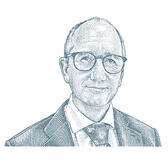
Duncan Wilson PhD, MRCP, MB ChB
Consultant Neurologist
Christchurch Hospital
Christchurch, New ZealandFellowship Site: Westmead Hospital and University of Sydney; Sydney, Australia
Duncan Wilson is a movement disorders neurologist and a recipient of the Edmond J. Safra Fellowship in Movement Disorders through The Michael J. Fox Foundation for Parkinson’s Research. He completed his clinical and research fellowship under Victor Fung in Sydney Australia. Dr. Wilson has a particular interest in improving access to advanced therapies and expanding movement disorder services in underserved regions. Based in Christchurch, New Zealand, Dr. Wilson leads efforts to develop comprehensive care models for people living with Parkinson’s disease, integrating multidisciplinary approaches with neuromodulation and neurogenetic diagnostics. He is actively involved in clinical research, including investigator-initiated trials and translational studies, with the goal of delivering meaningful, real-world outcomes for patients. Dr. Wilson is passionate about mentorship and collaboration, working across institutions to strengthen the global movement disorders community and promote equitable access to care.
-
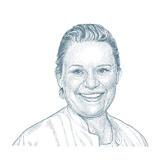
Isabel Wurster, MD
Medical Doctor
University Clinic for Neurology in Tübingen
Tübingen, GermanyFellowship Site: University of Tübingen - Tübingen, Germany
Isabel obtained her medical degree from the University of Tübingen in Germany and is now completing her residency in neurology at the University Clinic for Neurology in Tübingen, Germany. She is currently part of the clinical Parkinson's disease research group at Tübingen, focussing on fluid biomarkers, genetics and clinical trajectories in Parkinson's disease. After completing her fellowship in movement disorders she will continue the started work and will further be part in the Parkinson's disease research at the University of Tübingen, Germany.
-
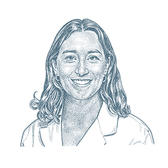
Laura Armengou García, MD
Clinician-Researcher in Movement Disorders
CHU de Quebec - University of Laval
Quebec, CanadaFellowship Site: Toronto Western Hospital – Ontario, Canada
Laura obtained her medical degree from the University of Seville in Spain and completed her residency in neurology at the Clinica Universidad de Navarra in Spain. She is currently completing her PhD at the University of Navarra, studying the clinical effect of unilateral subthalamotomy with magnetic resonance-guided high-intensity focused ultrasound in Parkinson's disease. After completing her fellowship in movement disorders at the Toronto Western Hospital, Laura will take up a faculty position as a clinician-researcher in movement disorders at CHU de Quebec - University of Laval in Quebec, Canada.
-
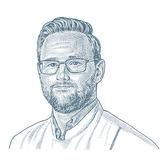
Milan Beckers, MD, PhD
Neurologist
Radboundumc Center of Expertise for Parkinson & Movement Disorders
Nijmegen, NetherlandsFellowship Site: Radboud University Nijmegen Medical Centre – Nijmegen, the Netherlands
Milan graduated from the Edmond J. Safra Fellowship in Movement Disorders at Radboudumc Center of Expertise for Parkinson & Movement Disorders in Nijmegen, under the supervision of assoc. prof. dr. Bart Post. In 2024, he was awarded the qualification of movement disorders specialist by the Netherlands Society for Neurology. He continues his work at Radboudumc, combining his work as a clinical neurologist with PhD research into premature metabolization of levodopa, under the supervision of prof. Bas Bloem. They are hopeful that the results of their research will improve the quality of life of many people with Parkinson's disease.
-
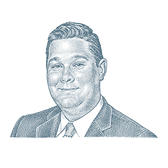
Stephen Berger, MD, PhD
Clinical and Research Fellow
Parkinson's and Movement Disorders Center; John Hopkins University School of Medicine
Baltimore, MarylandFellowship Site: Johns Hopkins University School of Medicine – Baltimore, Maryland
Stephen completed a dual MD-PhD followed by neurology residency at New York University. He then completed a movement disorders fellowship with support from the Edmond J. Safra Foundation and The Michael J. Fox Foundation at the Johns Hopkins University School of Medicine. His clinical and research interests are in Parkinson's disease dementia and dementia with Lewy bodies. As a fellow, he is developing a stem cell-based model for studying the cellular mechanisms of these diseases. He plans to continue a career as a physician-scientist in this area.
-
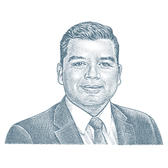
José Ricardo López Castellanos, MD
Autonomic Disorders Fellow
Beth Israel Deaconess Medical Center, Harvard Medical School
Boston, MassachusettsFellowship Site: Emory University – Atlanta, Georgia
Ricardo Lopez Castellanos was born and raised in El Salvador, Central America, where he obtained his MD degree and became interested in Movement Disorders while participating in PD support groups, developing a passion for patient empowerment through education. He then completed a movement disorder research fellowship at the University of Cincinnati with efforts oriented to study autonomic dysfunction in PD and other non-motor symptoms, followed by Neurology residency at the University of Arkansas for Medical Sciences, where he served as a chief resident. He is now completing a clinical Movement Disorders Fellowship as Edmond J. Safra fellow at Emory University and will conclude his training with a fellowship in Autonomic disorders at Beth Israel Deaconess Medical Center, Harvard Medical School. He enjoys bedside teaching and medical education through social media. His hobbies include visiting national parks, art museums, playing tennis and kayaking.
-
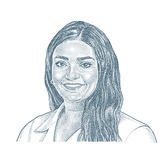
Leila Saadatpour, MD
Assistant Professor
University of Texas Health at San Antonio
San Antonio, TexasFellowship Site: Cleveland Clinic – Cleveland, Ohio
Leila grew up in a historical city called Esfahan. After graduating from medical school, she had the ambition and goal to continue her studies in the United States. Leila spent two years doing research at the University of Florida where she was introduced to the movement disorders clinics. Later, she finished her neurology residency at the University of Texas Health in San Antonio. Having spent time in movement clinics, Laura developed a passion in this field. She then decided to pursue a Edmond J. Safra Fellowship at the Cleveland Clinic where she received comprehensive training in clinical patient care, research and education. She is now at UT San Antonio as an assistant professor.
-
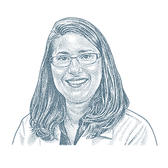
Christina Behrend Swan, MD, PhD
Assistant Professor of Neurological Sciences
Rush University Medical Center Movement Disorders
Chicago, IllinoisFellowship Site: Rush University Medical Center – Chicago, Illinois
Christina completed a medical degree and doctorate in Biomedical Engineering at Duke University in 2018. Her graduate research focused on understanding the role of beta frequency oscillations in symptoms of Parkinson’s disease. She completed a neurology residency at the University of Pennsylvania in 2022 and an Edmond J. Safra Fellowship in Movement Disorders at Rush University Medical Center in 2024. She will join the faculty of Rush University as an Assistant Professor in Neurological Sciences with a specialization in surgical interventions for movement disorders. Her research interests include understanding circuit dynamics in deep brain stimulation for efficient parameter optimization.
-
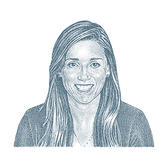
Rebecca Williamson, MD, PhD
Assistant Professor in Clinical Neurology
University of Pennsylvania
Philadelphia, PennsylvaniaFellowship Site: University of Pennsylvania – Philadelphia, Pennsylvania
Rebecca earned her medical degree at Columbia University in New York, New York and completed a doctorate in neurology studying the cellular and molecular underpinnings of Alzheimer’s disease. She completed neurology residency through the Harvard Neurology Residency Program at Brigham and Women’s and Massachusetts General Hospitals in Boston, Massachusetts and the Edmond J. Safra Fellowship in Movement Disorders at the University of Pennsylvania and Philadelphia VA Medical Center PADRECC. She plans to focus her clinical work on the intersection of cognition and movement disorders.
-
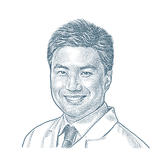
Jun Yu, MD, MS
Assistant Professor of Neurology
University of Florida Normal Fixel Institute for Neurological Diseases
Gainesville, FloridaFellowship Site: The Norman Fixel Institute for Neurological Diseases at University of Florida Health - Gainesville, Florida
Jun “John” Yu earned his medical degree from SUNY Upstate Medical University and completed his neurology residency at the University of Florida (UF), where he served as chief resident. He remained at UF for a fellowship in movement disorders, gaining additional expertise in neurophysiology and intraoperative mapping for deep brain stimulation. With a long-standing interest in neuroscience and technology, John has participated in multiple neuromodulation-related research projects and published journal articles on various topics. His research focuses on using neurophysiology, neuroimaging, and machine learning techniques to advance the understanding of brain networks and improve neuromodulation therapies for movement disorders.
-
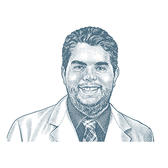
Sergio Andrés Castillo-Torres, MD
Neurologist
Servicio de Movimientos Anormales, Fleni
Buenos Aires, ArgentinaFellowship Site: Fleni Hospital - Buenos Aires, Argentina
Sergio completed medical training in Monterrey, Nuevo León, northeastern Mexico, specializing in both Internal Medicine and Clinical Neurology at Hospital Universitario Dr. José Eleuterio González, Universidad Autónoma de Nuevo León. After graduating, he was invited as Assistant Professor in Neurology, actively participating in clinical research, earning him recognition as a Level I Researcher in Mexico’s National Researcher System from the National Council for Science and Technology. In 2021, he was selected for the first Edmond J. Safra Fellowship in Movement Disorders in Latin America, a prestigious position held at the renowned Movement Disorders Service in Fleni, Buenos Aires, Argentina.
-

Stephen Joza, MD, PhD
Neurologist
Montreal Neurological Institute at McGill University
Montreal, CanadaFellowship Site: The Research Institute of the McGill University Health Centre – Montreal, Canada
Steve completed a doctorate in pathobiology at the University of Toronto, medical degree at Queen’s University at Kingston, neurology residency at the University of Alberta, and clinical and research fellowship in movement disorders at McGill University. To further his interest in the intersection between neurodegenerative diseases and sleep dysfunction, he is set to undergo additional fellowship training in sleep neurology at the University of Toronto before starting a position as an academic clinician-researcher. His research interests involve detecting the early stages of prodromal Parkinson’s disease, and sleep and cognition in normal and pathological aging.
-
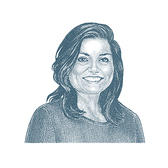
Francesca Magrinelli, MD, PhD
Neurologist
UCL Queen Square Institute of Neurology
London, EnglandFellowship Site: University College London – London, England
Francesca is a neurologist and postdoctoral researcher at UCL Queen Square Institute of Neurology, University College London (UCL). She was awarded her PhD in 2021 and graduated from the Edmond J. Safra Fellowship in Movement Disorders at UCL. She works in movement disorders, botulinum toxin and neurogenetics clinics at the National Hospital for Neurology and Neurosurgery, London. She has lab competency in neurogenetics. Her main research interests focus on gene discovery and validation, deep phenotyping, genotype-phenotype correlations and experimental approaches towards precision medicine in monogenic movement disorders. She has published over 70 peer-reviewed articles.
-
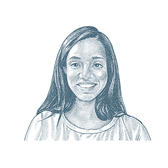
Poornima Jayadev Menon, MB BCh BAO, MRCPI
Neurologist
Institut du Cerveau – Hôpital Pitié Salpêtrière
Paris, FranceFellowship Site: Pitié-Salpêtrière Hospital; Paris, France
Poornima cares for patients with Parkinson's disease and other movement disorders. She has a particular interest in young onset Parkinson's disease. Her research focuses on the genetic contributors to Parkinson's disease, with the hope that identifying these factors will allow for disease modifying therapies for Parkinson's disease.
-
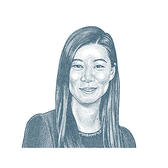
Andrea Sujung Yoo, MD
Assistant Professor of Clinical Neurology in Movement Disorders
Weill Cornell
New York, NYFellowship Site: Mount Sinai Beth Israel Medical Center - New York, New York
Andrea completed her undergraduate studies at Cornell University, medical degree at NYU Grossman School of Medicine and Neurology residency at New York Presbyterian-Weill Cornell where she served as Chief Resident. As an Edmond J. Safra Fellow in Movement Disorders at Mount Sinai Beth Israel, her research studies focused on lighting intervention in sleep disturbances in Parkinson’s disease and characterizing genetic variants in Parkinson’s disease in an ethnically diverse New York City population. She will be returning to Weill Cornell as an Assistant Professor of Clinical Neurology in Movement Disorders with research interests in Parkinson’s disease genetics and biomarker identifications in underrepresented minority populations.
-

Aditya Boddu, MD
Assistant Professor of Neurology
University of Arkansas
Little Rock, ArkansasFellowship Site: UAB (University of Alabama at Birmingham); Birmingham, Alabama
Aditya completed medical school at Gandhi Medical College in India and residency at the University of Missouri in Columbia. He chose to specialize in movement disorders because of its inherent reliance on good clinical skills to diagnose and manage complex diseases and the foundation it affords to foster long-term relationships with patients. Through his Edmond J. Safra fellowship in movement disorders, he discovered the challenges of correlating genotypes and phenotypes in movement disorders and the powerful role of therapies such as neurostimulation in Parkinson’s disease. When not phenomenologizing, Aditya can be found hiking trails with his dog or reading a good book.
-

Conor Fearon, BE, MB, BCh, BAO, MRCPI, PhD
Consulting Neurologist
Dublin Neurological Institute (DNI)
Dublin, IrelandFellowship Site: Toronto Western Hospital; Ontario, Canada
Conor cares for people with all types of movement disorders, including Parkinson’s, while simultaneously advancing research in these conditions. Given his background in engineering, Connor’s research interest is focused on the use of technology in the assessment and management of Parkinson’s disease and other movement disorders. In particular, he is interested in how technology could be used to complement the clinical assessment of people living with movement disorders and monitor disease progression and response to treatment.
-

Eoin Mulroy, MB BCh BAO
Neurologist
UCL Queen Square Institute of Neurology
London, EnglandFellowship Site: UCL Queen Square Institute of Neurology; London, England
Eoin is a neurologist and movement disorder specialist with a passion for clinical neurology, patient-focused clinical research, health economics and doctor-patient communication. Eoin is currently completing his PhD at University College London, exploring factors that influence variability in an individual’s response to deep brain stimulation treatment for dystonia. Following completion of his PhD, Eoin plans to take a position as an academic movement disorder clinician-researcher.
-

Chintan Shah, MD
Movement Disorder Specialist
Kelsey-Seybold Clinic
Houston, TexasFellowship Site: Baylor College of Medicine; Houston, Texas
Chintan studied neurobiology as an undergraduate at the University of Texas at Austin and obtained his MD from Texas Tech University Health Sciences Center in El Paso. He completed his neurology residency and Edmond J. Safra Fellowship in Movement Disorders at Baylor College of Medicine. Chintan cares for people with Parkinson’s disease, atypical parkinsonism and other movement disorders. His research interests lie in advanced therapies such as deep brain stimulation and discovering genetic causes of movement disorders.
-

Jon Toledo Atucha, MD, PhD
Scientific Director
NANTZ National Alzheimer’s Center at Houston Methodist Hospital
Houston, TexasFellowship Site: Norman Fixel Institute for Neurological Diseases at University of Florida Health; Gainesville, Florida
Jon completed his medical school and first neurology residency at the University of Navarra, Spain, where he also completed his PhD, evaluating neurophysiological deep brain stimulation recordings. He then moved to the University of Pennsylvania, as a post-doctoral researcher and research associate analyzing neuropathological, imaging and biofluid biomarkers in people with dementia and movement disorders. Jon then completed his second neurology residency at the Houston Methodist Hospital, followed by a movement disorders fellowship at the University of Florida as an Edmond J. Safra Fellow.
-

Pavan Vaswani, MD, PhD
Assistant Professor
University of Pennsylvania
Parkinson’s Disease Research, Education and Clinical Center (PADRECC)
Philadelphia, PennsylvaniaFellowship Site: University of Pennsylvania; Philadelphia, Pennsylvania
Pavan completed medical school at the Johns Hopkins University School of Medicine in Baltimore, Maryland, neurology residency through the Harvard Neurology Residency Program at Brigham and Women’s and Massachusetts General Hospitals in Boston, Massachusetts and Edmond J. Safra Fellowship in Movement Disorders at the University of Pennsylvania and Philadelphia VA Medical Center PADRECC. He continues to apply his research focus on deep brain stimulation, clinical research and teaching experience towards his career
-

Whitley Aamodt, MD, MPH
Assistant Professor of Neurology
University of Pennsylvania
Philadelphia, PennsylvaniaFellowship Site: University of Pennsylvania; Philadelphia, Pennsylvania
Whitley cares for patients with Parkinson’s disease and other movement disorders. Her research explores health outcomes and end-of-life care for patients with Parkinson’s disease and atypical parkinsonism. She is particularly interested in developing initiatives to improve quality of life for patients at all stages of disease.
-
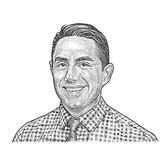
Amir Badiei, MD, MS
Neurologist
Cedars-Sinai Medical Group,
Los Angeles, CaliforniaFellowship Site: University of California, San Francisco (UCSF); San Francisco, California
Amir studied Cognitive Science as an undergraduate at the University of California, Berkeley, and obtained a master's degree in Biomedical Sciences at Tufts University. He completed his medical degree at Saint Louis University, and his residency training in the Harvard Neurology Program at Beth Israel Deaconess. Within Movement Disorders, Dr. Badiei's interest lies in the atypical parkinsonian syndromes, the neurocognitive effects of deep brain stimulation in parkinsonism, and brain mapping.
-

Christopher Caughman, MD
Assistant Professor, Neurology
Emory University
Atlanta, GeorgiaFellowship Site: Emory University; Atlanta, Georgia
Chris is a movement disorder neurologist at Emory University. After completing his residency in neurology at Emory University, Chris continued his training as an Edmond J. Safra fellow at Emory University. Following the completion of his fellowship, Chris will be staying on faculty as an Assistant Professor of Neurology with a focus in the clinical management of Parkinson’s disease, essential tremor, dystonia, and other movement disorders.
-

Judith van Gaalen, MD
Chief of Clinic, Neurology
Rijnstate Hospital
Arnhem, the NetherlandsFellowship Site: Radboud University Medical Centre; Nijmegen, the Netherlands
Judith diagnoses and treats patients with various types of movement disorders. Next to Parkinson’s disease, she has specific expertise in rarer movement disorders, such as cerebellar ataxia. She combines care for these patients with research in this field. She is involved in the care for patients with Parkinson’s disease, including those receiving deep brain stimulation (DBS). Judith strives to optimize care for young patients with movement disorders and will continue working on this after completion of her fellowship.
-
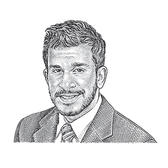
Neil Shetty, MD
Clinical Instructor
Northwestern University
Chicago, IllinoisFellowship Site: Northwestern University; Chicago, Illinois
Neil received his B.S. in neuroscience from University of Illinois at Chicago and his M.D. from University of Illinois College of Medicine at Peoria. He completed his medical internship, neurology residency, and his two-year Edmond J. Safra Fellowship in Movement Disorders at McGaw Medical Center of Northwestern University. During his fellowship, Dr. Shetty received specialized training in deep brain stimulation and other advanced therapeutics for Parkinson’s disease and other movement disorders. He will stay on as faculty at Northwestern in Chicago as a movement disorders specialist with a focus in DBS and advanced therapeutics.
-

Juliana Coleman, MD
Instructor, Department of Neurology
UAB (University of Alabama at Birmingham)
Birmingham, AlabamaFellowship Site: UAB (University of Alabama at Birmingham); Birmingham, Alabama
Juliana diagnoses and treats patients with movement disorders, including Parkinson’s disease. She focuses on deep brain stimulation (DBS) surgery and programming. She plans to pursue a career as a clinician-educator. She currently designs curricula and teaches medical students to perform the neurologic exam more effectively.
-

Grace Crotty, MD, MB BCh BAO, MRCPI
Instructor of Neurology
Massachusetts General Hospital and Harvard Medical School
Boston, MassachusettsFellowship Site: Massachusetts General Hospital; Boston, Massachusetts
Grace cares for people with Parkinson’s disease and other movement disorders. Her research explores the interaction between genes and the environment. A better understanding of this relationship could identify disease-modifying therapies for individuals with Parkinson’s disease and lead to the development of preventative trials in at-risk genetic carriers.
-

Eric Jackowiak, MD
Assistant Professor, Department of Neurology
Medical College of Wisconsin and Milwaukee VA Medical Center
Milwaukee, WisconsinFellowship Site: University of Michigan; Ann Arbor, Michigan
Eric provides comprehensive clinical care to people living with Parkinson disease and other movement disorders. In doing so, he enjoys building connections with patients and their loved ones. He also has a special interest in educating the next generation of neurologists. His research during The Edmond J. Safra Fellowship examined the caregiver experience of deep brain stimulation for Parkinson’s disease.
-

Greg Kuhlman, MD, MBA
Assistant Professor
University of Cincinnati Department of Neurology & Rehabilitation Medicine
Cincinnati, OhioFellowship Site: Toronto Western Hospital; Ontario, Canada
Greg’s clinical work is focused on movement disorders with an interest in Parkinson’s disease. His research involves developing more effective web-based educational tools for people with Parkinson’s disease and care partners.
-

Kimberly Kwei, MD, PhD
Assistant Professor, Movement Disorders Division
Columbia University
New York, New YorkFellowship Site: Columbia University Medical Center; New York, New York
Kimberly evaluates and treats patients with a multitude of movement disorders but has a special interest in the various gait disorders that affect patients with Parkinson's disease. Her research centers on examining the underlying neuronal pathways that cause gait dysfunction via neuromodulation systems.
-

Anne Weissbach, MD
Clinician Scientist
Institute of Neurogenetics and the Institute of Systems Motor Science, University of Lübeck
Lübeck, GermanyFellowship Site: University of Lübeck; Lübeck, Germany
Anne has a strong research interest in the neurophysiology of patients with monogenic dystonia and Parkinson’s such as Parkin and PINK1-associated Parkinson’s. She uses transcranial magnetic stimulation to investigate motor network alterations and analyzes how they can be modified by therapeutic approaches such as dopaminergic treatment and deep brain stimulation.
-

Katherine Amodeo, MD
Movement Disorders Specialist
Department of Neurology
Westchester Medical Center- MidHudson Regional Hospital
Poughkeepsie, New YorkAssistant Professor of Neurology
School of Medicine at New York Medical College
Valhalla, New YorkAdjunct Assistant Professor of Neurology
University of Rochester School of Medicine and Dentistry
Rochester, New YorkAdjunct Instructor
School of Science at Marist College
Poughkeepsie, New YorkFellowship Site: University of Rochester; Rochester, New York
Katherine evaluates and treats patients with neurological disorders, with a focus in movement and cognitive disorders. Her research focuses on identifying modifiable risk factors for cognitive impairment with the goal of mitigating risk for dementia in those with Parkinson’s disease and prodromal dementia with Lewy bodies.
-
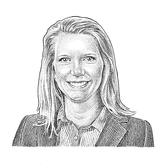
Sarah Horn, MD
Assistant Professor of Neurology
University of Texas Health Science Center
San Antonio, TexasFellowship Site: University of Pennsylvania; Philadelphia, Pennsylvania
Sarah cares for patients with Parkinson’s disease and other movement disorders. Her comparative effectiveness outcomes research focuses on determining which interventions work best for patients to improve the quality of care.
-
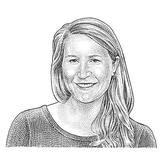
Katherine Leaver, MD
Assistant Professor of Neurology
Division of Movement Disorders
Mount Sinai Beth Israel
New York, New YorkFellowship Site: Icahn School of Medicine at Mount Sinai; New York City, New York
Katherine diagnoses and manages patients with complex movement disorders, such as Parkinson’s disease and parkinsonism. She also runs several clinical trials. Her main research interests include examining LRRK2 mutation Parkinson’s disease and deep brain stimulation outcomes.
-
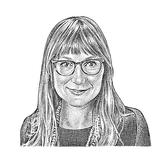
Jessica Weinstein, MD
Neurologist
Kaiser Permanente Antioch Medical Center
Antioch, CaliforniaSan Francisco VA Medical Center
San Francisco, CaliforniaFellowship Site: University of California, San Francisco; San Francisco, California
Jessica’s medical practice focuses on care for underserved and relatively rural populations in California. She is the only trained movement disorder in the area and actively involved in the sole Parkinson’s disease support group in the region. Jessica is interested in the management of motor, non-motor and palliative care needs of people living with movement disorders.
-
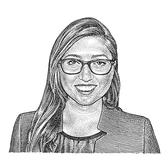
Natalie Witek, MD, MS
Assistant Professor
Division of Movement Disorders/Neurology
Rush University
Chicago, IllinoisFellowship Site: Rush University; Chicago, Illinois
Natalie divides her time between treating patients with Parkinson’s disease and other immune-mediated movement disorders and researching biomarkers (objective measures to diagnose and track disease). She is particularly focused on studying immune markers in patients with Parkinson’s to help target individuals who might respond better to certain types of treatments.
-
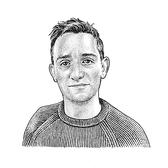
David P. Breen, MRCP (Neurol), PhD
Honorary Consultant Neurologist and Senior Clinical Research Fellow
University of Edinburgh
Edinburgh, ScotlandFellowship Site: Toronto Western Hospital; Ontario, Canada
David treats movement disorder patients while leading research into their conditions. He developed a new program at the Anne Rowling Regenerative Neurology Clinic to care for people and connect them to research studies. His research looks to understand genetic and environmental risk factors for Parkinson's as well as the influence of sleep on brain health and how it impacts risk of developing diseases such as Parkinson's.
-
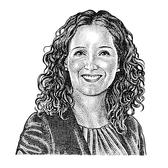
Marissa Dean, MD
Assistant Professor of Neurology
UAB (University of Alabama at Birmingham)
Birmingham, AlabamaFellowship Site: UAB (University of Alabama at Birmingham); Birmingham, Alabama
Marissa evaluates and treats people with all types of movement disorders, including Parkinson's, Huntington's, ataxia and others. She also runs several clinical trials. Her main research interests are the genetics of movement disorders, underrepresented populations in Parkinson's studies, including African-Americans, and the education of patients, families and medical students about Parkinson’s.
-
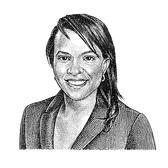
Lenora Higginbotham, MD
Assistant Professor of Neurology
Emory University
Atlanta, GeorgiaFellowship Site: Emory University; Atlanta, Georgia
Lenora divides her time between treating people with movement disorders in the clinic and researching biomarkers (objective measures to diagnose and track disease) in the lab. She is particularly focused on biomarkers for Parkinson’s and atypical parkinsonisms, conditions that can mimic Parkinson’s disease and, like Parkinson’s, do not yet have diagnostic tests. -

Christine Kim, MD
Assistant Professor of Neurology, Division of Movement Disorders
Columbia University
New York, New YorkFellowship Site: Columbia University; New York, New York
Christine evaluates and treats patients with movement disorders and, at the same time, directs research into these conditions. Her work centers on focal dystonia, a condition that causes involuntary muscle contractions and postures in one body part. She’s especially interested in understanding and treating musicians’ dystonia because of her background as a violinist. Christine serves on the AAN Clinical Research Subcommittee.
-
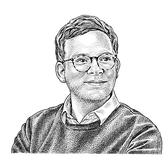
Gerrit Machetanz, MD
Clinician-scientist
Technical University of Munich
Munich, GermanyFellowship Site: University of Tübingen; Tübingen, Germany
Gerrit evaluates and treats patients with Parkinson’s and Atypical Parkinsonian Disorders. He also serves as an investigator on Parkinson's and other movement disorder trials and is working on separating the different underlying mechanisms of Parkinson's to advance personalized treatment approaches.
At the current time, 17 physicians are in training with world-renowned movement disorder specialists at esteemed institutions across the world to hone their diagnostic, treatment and research skills so that upon graduation they are experts in both patient care and research.
-
Nicholas Bodnar, MD, PhD
Brigham and Women's Hospital - Harvard Medical School - Boston, Massachussets
Nicholas Bodnar is a neurology resident at Harvard Medical School -- in a combined program at Brigham and Women’s Hospital and Massachusetts General Hospital, where he discovered a strong clinical interest in movement disorders. He graduated Harvard College with his bachelors in chemical and physical biology and Harvard Medical School with a PhD in biological and biomedical sciences. He joined the lab of Gregory Petsko, whose research program focuses on rigorous mechanistic dissection of the biology of neurodegeneration. In Dr. Petsko’s lab, Bodnar studied the retromer, a key protein machine with multiple connections to the neurodegenerative conditions.
-
Carlos Lázaro Hernández
Fundació de Recerca Clínic Barcelona-Institut d’Investigacions Biomèdiques August Pi i Sunyer (FRCB-IDIBAPS) - Barcelona, Spain
-
Shashika Rodrigo, MD
Rush University Medical Center – Chicago, Illinois
Shashika Rodrigo completed her undergraduate degree at University of Texas at Austin where she majored in Public Health. She then went onto the University of Texas Medical Branch at Galveston for medical school where her interest in neurology was sparked and her love for volunteering was fostered. She attended Washington University/Barnes Jewish Hospital for neurology residency. During residency, she became enthralled with movement disorders and enjoyed the lifelong relationships formed between patients and physicians. She starts the Movement Disorders fellowship at Rush University Medical Center in July 2024. She is interested in pursuing clinical research in movement disorders.
-
Sara Berman, MD, PhD
The Trustees of the University of Pennsylvania - Philadelphia, Pennsylvania
Sara Berman completed her MD and PhD training at the University of Wisconsin School of Medicine and Public Health in 2020, where she studied the role of vascular risk factors in the development of Alzheimer’s disease and other dementias. Through her neurology residency training at Penn, she became interested in Parkinson's disease and is excited to pursue fellowship training in movement disorders. She endeavors to provide high level, comprehensive support to individuals with movement disorders throughout their disease processes and learn how to better incorporate palliative care into neurology clinic visits. Additionally, she hopes to gain experience in clinical trials in Parkinson's disease, especially involving biomarkers.
-
Patrick Cullinane, MB BCh BAO, MSc, MRCPI
University College London - London, United Kingdoms
Patrick Cullinane graduated from the National University of Ireland Galway and is currently undertaking specialist training in neurology. He spent four years working as a clinical research fellow at the UCL Queen Square Brain Bank where he became particularly interested in the molecular mechanisms responsible for clinicopathological heterogeneity in Parkinson’s disease and related conditions. The Edmond J. Safra Fellowship in Movement Disorders will enable Cullinane to further develop the skills and experience required to effectively care for people with Parkinson’s disease and other movement disorders and will also afford him the opportunity to continue his research into the pathophysiology of misfolded alpha-synuclein and tau proteins.
-
Sanne Meles, MD, PhD
University Medical Center Groningen - Groningen, Netherlands
Sanne Meles received her degree in medical school from the University of Groningen in 2013. This included a research internship at the Feinstein Center for Neurosciences (New York, USA). Her focus on FDG-PET patterns in neurodegenerative disorders, with a special emphasis on Parkinson's disease and its prodromal stage, culminated in a thesis defense with honors in 2020. Since completing her neurology training in April 2023, Meles has been practicing as a neurologist at the UMCG and 'Punt voor Parkinson.' She continues to study biomarkers in Parkinson's disease and aspires to improve its early diagnosis and treatment. -
Eshita Shah, MD, MS
University of California, San Diego - San Diego, California
Eshita Shah is completing neurology residency at the University of California Irvine where she currently serve as a chief resident. During this time, Shah developed an interest in Movement Disorders after seeing a patient with Parkinson’s disease and deep brain stimulation. She is excited to pursue a Movement Disorders fellowship at the University of California San Diego, where she hopes to stay involved in medical education and participate in research for Parkinson’s disease. Shah is passionate about exploring digital biomarkers in Parkinson’s and utilizing data from wearable technologies, which may aid in earlier diagnoses and more effective symptom management.
-
The Regents of the University of California - California, San Francisco
TBA
-
Cleveland Clinic - Cleveland, Ohio
TBA
-
Westmead Hospital - Westmead, Australia
TBA
-
University of Florida-Shands Health Center - Gainesville, Florida
TBA
-
Dublin Neurological Institute at the Mater and St. Vincent's University Hospital - Dublin, Ireland
TBA
-
Fleni Hospital - Buenos Aires, Argentina
TBA
-
Mount Sinai Hospital - New York, New York
TBA
-
Hospital de Clínicas de Porto Alegre - Porto Alegre, Brazil
TBA
-
Amsterdam University Medical Centers - Amsterdam, Netherlands
TBA
-
Corporacion CETRAM - Lo Espejo, Chile
TBA
-
Duke University School of Medicine - Durham, North Carolina
TBA
-
Toronto Western Hospital - Toronto, Canada
TBA
-
University of Alabama at Birmingham - Birmingham, Alabama
TBA
-
University of British Columbia - Vancouver, British Columbia
TBA
-
University of Zurich - Zurich Switzerland
TBA
-
Washington University School of Medicine - St. Louis, Missouri
TBA
Launched in 2022, this competitive research funding program aimed to support fellowship graduates’ contributions to Parkinson’s research and paths to becoming independent scientific investigators at the forefront of the field.
An independent review committee evaluated applicants based on their strengths as a scientist, the clarity of their path forward, and the potential impact of their proposed research project. Each awardee received a $50,000 grant to complete a two-year research project on Parkinson’s and related disorders.
Francesca Magrinelli, MD, PhD; Class of 2023
University College London; London, England
Magrinelli aims to replicate, functionally validate and mechanically characterize a novel candidate gene for early-onset Parkinson’s and parkinsonism, further dissecting Parkinson’s pathogenesis and defective pathways in order to identify druggable targets. While rare, monogenic PD forms have enabled invaluable insights into PD pathogenesis, thus representing a fast track to targeted therapies.
Kimberly Kwei, MD, PhD; Class of 2020
Columbia University; New York, NY
In order to gain a better understanding of the neuronal circuits underlying freezing of gait, commonly encountered in advanced Parkinson’s and some atypical parkinsonisms, Kwei will study the clinical convergence of symptoms to learn more about commonalities and divergences in pathophysiology across disease entities.
Conor Fearon, BE, MB, PhD; Class of 2022
Consulting neurologist; Dublin Neurological Institute; Dublin, Ireland
Combining his expertise in electrical engineering and movement disorders, Conor aims to develop non-invasive objective measures (biomarkers) to diagnose and track Parkinson’s and related diseases by analyzing eye movements and pupillary changes. Conor anticipates his findings will improve both care and clinical trials of Parkinson’s.
Anne Weissbach, MD; Class of 2020
Clinician scientist; Institute of Neurogenetics Lübeck and Institute of Systems Motor Science; Lübeck, Germany
Using non-invasive brain stimulation, Anne will evaluate unique brain signals in people with inherited Parkinson-dystonia syndromes. These diseases have symptoms of both PD and dystonia, a muscle cramping that can be part of PD or a condition on its own. Anne hopes this work will lead to better understanding of and treatments for both Parkinson’s and dystonia.
More Resources
-

See a PD Specialist
The MDS Movement Disorders Specialist Finder can help you locate a doctor in your area.
-

Contact an Edmond J. Safra Fellow
Edmond J. Safra Fellowship alumni provide expert care to people and families with Parkinson’s around the world. Find a fellowship graduate in your area.
-

Apply to the Program
Medical centers around the world that are interested in training a new movement disorder clinician-researcher may be eligible for funding.



